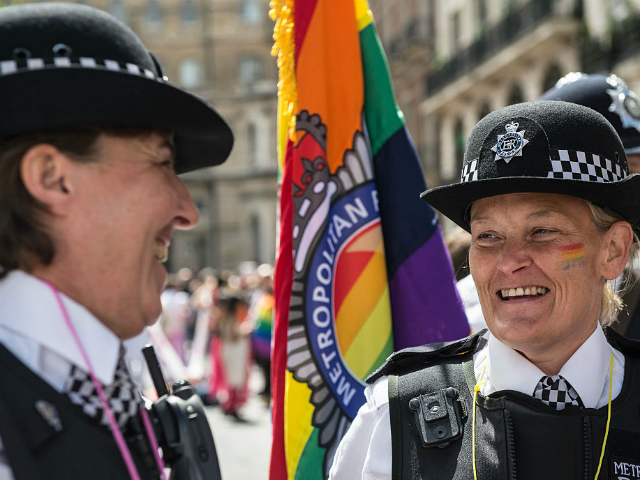Police officers in the United Kingdom are spending time and resources on logging tens of thousands of “hate incidents” every year, even though the offences are not crimes.
Over the past five years, police in England and Wales have recorded over 87,000 ‘non-crime hate incidents’, using the same system that logs real crimes, the result of which can lead to the offences appearing on an individual’s background check despite not committing a crime.
The figures, which were obtained under a Freedom of Information request by The Telegraph, come as the number of criminal offences for which someone has been charged has fallen to its lowest level recorded, down to 7.8 per cent from 15.5 per cent in 2015.
The rate of violent crime in the UK has also risen, particularly involving knives, with police reporting 44,000 knife crimes last year alone, up from 41,000 the year before.
In 2018, Metropolitan Police Service Commissioner Cressida Dick decried the lack of focus in the police force.
“My officers are very busy, they are very stretched. We have young people in London subject to gang violence, getting involved in drug dealing, stabbings, lots and lots of priorities,” she had said.
The scheme to tackle “hate” in the UK also includes the monitoring social media, which police have asked the public to report on “things like offensive or insulting comments, online, in person or in writing”.
The UK Hate Crime Operational Guidelines state that non-crime hate incidents “must be recorded regardless of whether or not they are the victim, and irrespective of whether there is any evidence to identify the hate element”.
A former police officer, Harry Miller, who was investigated by police in Humberside, after sharing allegedly “transphobic” tweets online, has since taken the police force to court on freedom of speech grounds.
The judge presiding in the case, Mr Justice Knowles, questioned the legality of the police guidelines, saying: “That doesn’t make sense to me. How can it be a hate incident if there is no evidence of the hate element?”
“Freedom of expression laws are not there to protect statements such as ‘kittens are cute’ — but they are there to protect unpleasant things. Its utility lies in exposing people to things that they do not want to hear,” added the judge.
Speaking to Breitbart London earlier this year, Mr Miller said: “I told [the investigating officer] about George Orwell’s Nineteen Eighty-Four. I said it was a dystopian novel, not a set of police guidelines.”
The ruling on Mr Miller’s case is expected to be given later this month. Mr Miller can be heard speaking to Breitbart London’s James Delingpole about his case here.
Follow Kurt on Twitter at @KurtZindulka

COMMENTS
Please let us know if you're having issues with commenting.